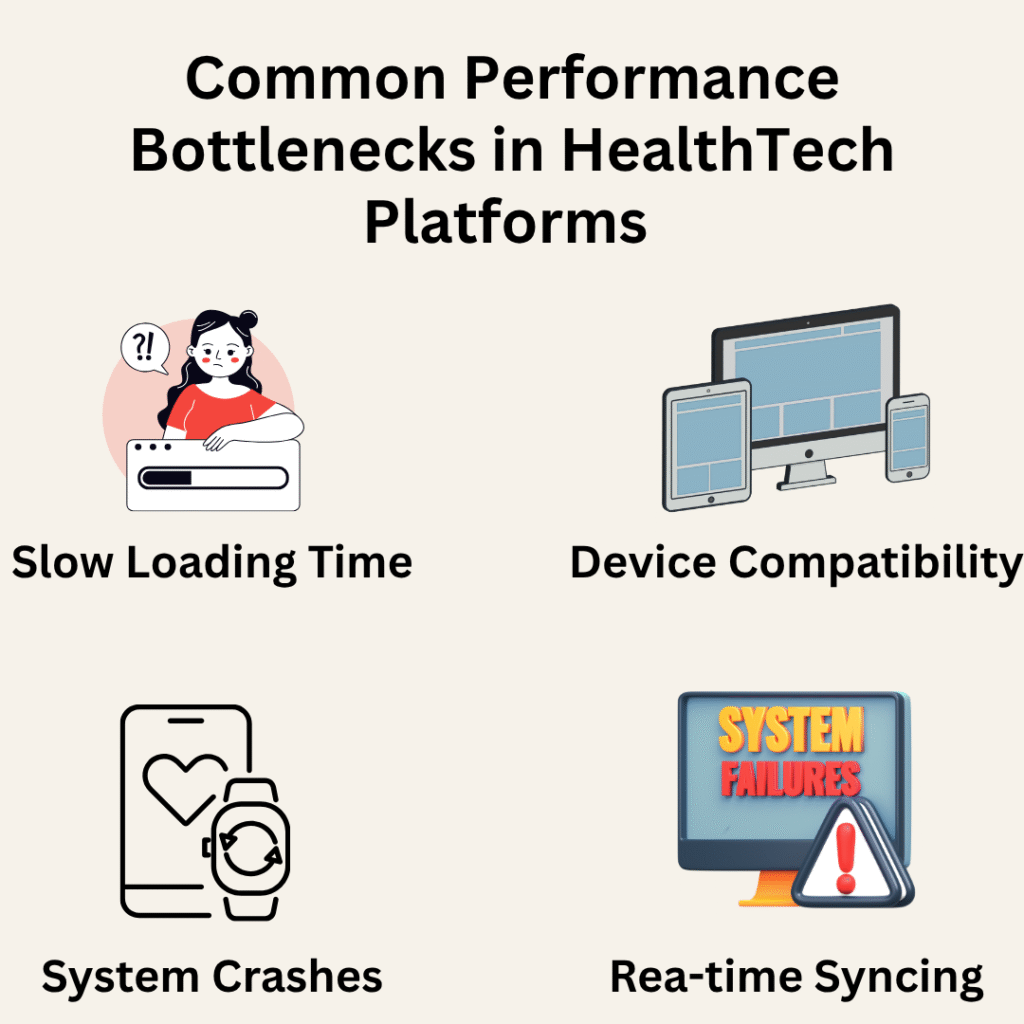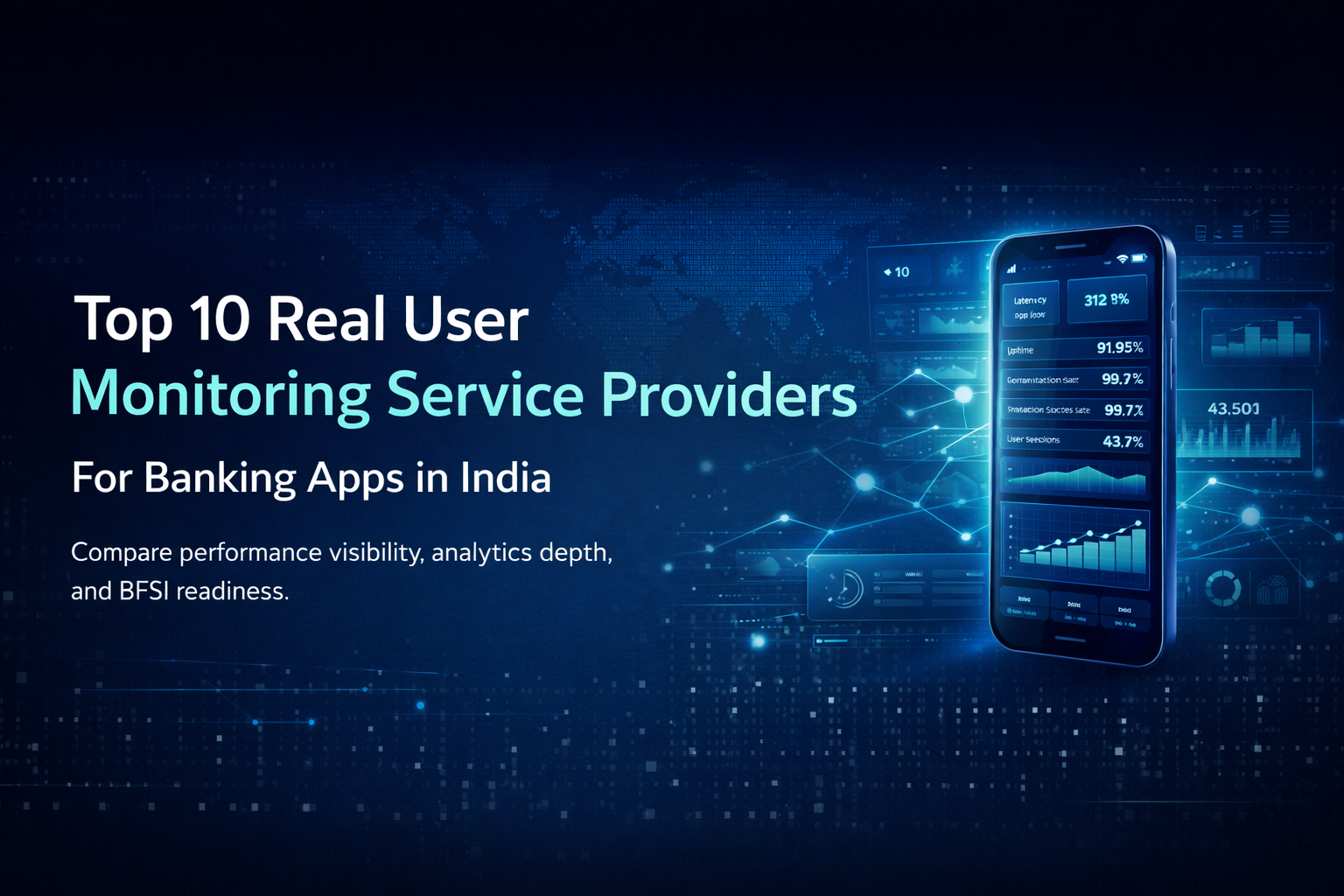Digital transformation is changing healthcare. From scheduling appointments to managing chronic diseases, HealthTech platforms are making medical services more accessible, faster, and often more affordable.
Whether it is a mobile app for tracking medication or a platform used by doctors to review patient data, technology is now at the center of healthcare delivery.
But unlike other industries, performance in HealthTech is not just about convenience. It directly impacts patient care, provider decisions, and even health outcomes. A glitchy app, a delayed response, or a frozen dashboard can cause serious delays in treatment.
This blog explores how technical performance in HealthTech platforms influences business models, clinical outcomes, and the trust patients place in digital tools.
Did you know? According to Statista, in 2025, global spending by healthcare providers is projected to reach approximately US $8.36 trillion, up from around US $11.59 billion in 2024 reported in narrower industry metrics and expected to grow at 4.2% annually through 2029 to nearly US $9.87 trillion.
Understanding HealthTech Business Models
HealthTech companies follow different business models depending on whom they serve. Most fall into one or more of the following categories:
- Patient-facing apps for wellness, medication tracking, or chronic disease management
- Provider tools such as Electronic Health Records (EHR) and clinical dashboards
- Teleconsultation platforms offering video-based remote care
- Subscription-based services for hospitals or individuals
- Integration platforms that connect pharmacies, labs, and diagnostics
These platforms earn revenue by licensing their software to hospitals, charging subscription fees to patients, or partnering with insurance providers and health systems. But the success of any model depends on how well the technology performs.
A fast and stable app increases user engagement, while a poor experience leads to drop-offs, negative reviews, and reduced trust. For HealthTech companies, app performance is not just a backend issue — it is a business-critical concern.
How Technical Performance Impacts Clinical Outcomes
In healthcare, a delay of even a few seconds can affect a medical decision. Here is how performance failures translate into clinical risks:
- A patient’s medication reminder notification arrives late, leading to a missed dose
- A video call between doctor and patient freezes during a critical explanation
- A blood pressure reading fails to sync on time, delaying provider follow-up
- A mobile app logs out frequently, making it harder for patients to stay consistent with monitoring
Unlike an entertainment or shopping app, the consequences here are not just about user frustration. They can directly interfere with care. This makes technical reliability central to clinical safety.
Common Performance Bottlenecks in HealthTech Platforms
HealthTech apps operate in complex environments with many moving parts. Some of the most common technical issues include:
- Slow loading times during high patient traffic hours, such as mornings or flu season
- Device compatibility issues, especially in low-resource settings where older phones are common
- Failures in real-time syncing between patient devices and provider dashboards
- System crashes during software updates or feature rollouts
- Delayed API calls between the HealthTech app and third-party services like labs or pharmacies

Each of these bottlenecks may seem small, but in a medical context, they can break user confidence and delay care.
Real-World Consequences of Performance Failure
A 2024 qualitative study published in the Journal of Medical Internet Research found that app crashes, bugs, and poor technical performance were among the top reasons patients stopped using mobile health apps.
The study, which collected patient feedback through interviews, highlighted that unreliable performance directly disrupted engagement and reduced trust in the technology.
For instance, a patient using a diabetes management app may experience repeated crashes or syncing failures.
Over time, they abandon the app, which means their healthcare provider no longer receives important data in real time. This can result in delays in treatment adjustments and potentially poorer health outcomes.
These issues are not hypothetical. They are real and increasingly common, especially in systems that lack rigorous performance testing or enter the market before being fully optimized.
Why Performance Is a Strategic Priority in HealthTech
HealthTech companies cannot treat technical performance as a background concern. It is a strategic priority for these reasons:
- It affects regulatory compliance. Unreliable apps may fail to meet healthcare standards and privacy rules
- It influences revenue and renewals. Hospitals and providers will not keep paying for tools that do not work
- It impacts user trust. Patients will not use apps that feel broken or unsafe
- It reduces clinical effectiveness. Delayed or missing data can lead to incorrect decisions
Reliable performance shows that a HealthTech brand is ready for scale and serious care delivery. This is critical when dealing with sensitive data and high expectations from both patients and providers.
Best Practices to Optimize HealthTech App Performance
To deliver a reliable experience, HealthTech platforms need a well-rounded strategy that includes monitoring, testing, and proactive management. This is where best practices like the following come in:
Application Performance Testing
Before rolling out any new feature, simulate real-world conditions. This includes testing the app on various devices, networks, and usage patterns to catch issues before they reach the user.
App Performance Monitoring
Real-time monitoring helps identify performance drops or bugs as soon as they happen. It allows developers to fix problems quickly and reduce user frustration.
Software Quality Testing
All releases should go through strict quality checks for functionality, speed, and security. A bug in a healthcare app is more than an inconvenience — it can be dangerous.
Production Management
Ensure that updates, patches, or content changes do not affect live performance. Have rollback plans and backup systems in place.
Application Performance Management
This involves taking a broader, end-to-end view of the system — from the user interface down to the server and infrastructure level. It helps identify root causes and improve performance holistically.
Together, these practices help build apps that are stable, scalable, and trusted.
Conclusion
In HealthTech, performance is not just about how fast or smooth an app feels. It is about ensuring that the right information reaches the right person at the right time — whether that person is a patient, a nurse, or a physician.
When an app runs well, users stay engaged, providers stay informed, and clinical decisions are timely. When it fails, it can delay care, create risks, and erode trust.
By making performance a central part of their strategy, HealthTech companies can not only grow their businesses but also improve the lives of the people who rely on them.
Find Out How We Can Help
Avekshaa helps HealthTech providers build platforms that deliver consistently high performance, even under pressure.
Our solutions in application performance testing, real-time monitoring, and software quality testing ensure that your app runs reliably, scales efficiently, and earns user trust in every interaction.
Frequently Asked Questions (FAQs)
1. What is HealthTech?
HealthTech refers to the use of technology to improve the delivery, monitoring, and management of healthcare services. This includes apps, electronic health records, telemedicine platforms, and wearable devices.
2. Why is app performance important in healthcare?
In healthcare, delays or glitches can affect real-time decision-making. If a health app crashes or lags, it can result in missed medication reminders, lost data, or delayed treatment — directly impacting clinical outcomes.
3. How do HealthTech companies make money?
Most HealthTech businesses earn revenue through subscriptions, licensing fees to hospitals or providers, partnerships with insurance or pharma companies, or by offering premium digital services to patients.
4. What are common performance issues in HealthTech apps?
Slow loading, crashes, login failures, syncing delays, and poor device compatibility are frequent issues. These problems can break user trust and affect how reliably the system supports care delivery.
5. How can app performance affect patient safety?
A poorly performing app can delay or disrupt care. For example, if a remote monitoring system fails to update a patient’s vitals on time, a physician may miss a critical warning sign.
6. What is application performance testing in HealthTech?
It involves testing a healthcare app under different usage scenarios before release. This helps find bugs, performance lags, and potential system failures so they can be fixed early.
7. How does real-time monitoring help HealthTech platforms?
Real-time app performance monitoring helps detect issues as they happen. Developers can resolve problems before they affect users, ensuring consistent, secure, and smooth functionality.
8. What is software quality testing?
Software quality testing ensures that the app works correctly and meets industry standards. It includes testing for performance, security, usability, and reliability before releasing updates or features.
9. What are the risks of not investing in performance management?
Without proper performance management, apps may face frequent crashes, poor reviews, and user drop-offs. In healthcare, this can also lead to regulatory issues or loss of provider trust.
10. How can Avekshaa support HealthTech businesses?
Avekshaa provides solutions like application performance testing, real-time monitoring, and production management. These services help HealthTech companies deliver secure, reliable, and high-performance platforms that support better clinical outcomes.


